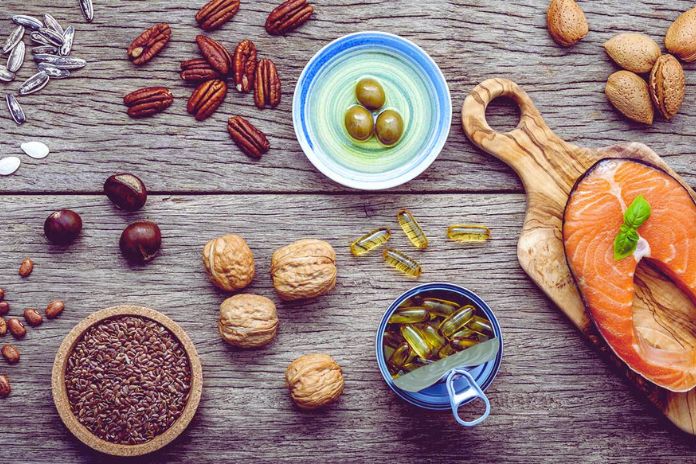Nutrients are essential for the proper functioning of the body. They prove that food does more than satisfy the appetite and awaken incredible sensations on the palate.
Nutrients reach our body through food, and knowing them is fundamental to understanding why we have a diet full of fruits and vegetables. Let’s go.
What Are Nutrients?
Nutrients are chemical compounds that make up food and are very important for the proper functioning of the human body. Each has a specific function, and we can divide them according to them. In this way, nutrients can be:
Macronutrients
They are those whose amount needed by the body is greater. This category includes proteins, lipids, and carbohydrates.
Micronutrients
They are those whose amount needed by the body is smaller. Vitamins and minerals are examples of micronutrients.
It is important to highlight that water and dietary fiber, despite being essential for the proper functioning of the body, fall outside the category of nutrients. Water is a substance, and dietary fiber is a carbohydrate that is not digested and, therefore, cannot be considered a nutrient.
How Nutrients Work In The Body
It all starts with digestion, so paying attention to what you eat is essential. The idea is to follow a balanced and well-diversified diet to get the necessary nutrients for the human body.
After food consumption, it must be “broken” into smaller pieces, the particles. These particles are absorbed in the small intestine, and then each nutrient passes into the circulation and begins to fulfill its function within the cell.
As we explained above, macro and micronutrients have different functions within cells. While macronutrients are broken down to generate energy, micronutrients assist in the breakdown process.
Key Nutrients Found In Fruits And Vegetables
Fruits and vegetables contain all the nutrients necessary for the proper functioning of the human body, except vitamin B12. When consumed within a healthy eating pattern, these foods contribute to the supply of nutrients and substances such as:
Fibers
It is worth mentioning that the consumption of raw foods guarantees a greater supply of this nutrient than cooked foods.
Vitamins
Popular culture already said the greater the number of colors present in food, the better the diversity in the supply of vitamins. Thus, as in the case of fiber, cooking alters the amount of this nutrient.
Minerals
They have a noble function in the body. They act in the portal structure (calcium), in the hydric balance (sodium and potassium), and in the functions of the metabolism (iron, iodine, selenium, and zinc), among others.
Bioactive Compounds
In small amounts (both in fruits and vegetables), these substances play an important role in preventing various diseases and in the proper functioning of the body.
Six Reasons To Include Vegetables In Your Daily Diet
Commitment to maintaining a healthy eating habit at all stages of life is recognized worldwide as one of the strategies for health and longevity. Nutritionally healthy choices prioritize consuming fresh foods as the basis of daily eating.
Encouraging the consumption of fruits and vegetables is one of the biggest challenges today. But after all, what is so special about these foods?
Here are six important qualities that add benefits to produce :
Low Energy Density
Fruits and vegetables belong to the group of foods with low energy density; that is, when consuming 01 servings of vegetables and various raw vegetables, we will obtain an average of 30 kcal. About fruits, 0.1 portion of the fruit contains an average of 70 kcal¹.
Contribute To Satiety
The dietary fiber present in fruit and vegetables provides satiety. Including these foods in the main meals (breakfast, lunch, and dinner) reduces the consumption of foods with greater energy density.
Source Of Micronutrients
Fruits and vegetables are excellent food sources of vitamins, minerals, and bioactive compounds. Such substances participate in the metabolic processes that regulate the proper functioning of our organisms. The greater the variety, the better the offer of nutrients, which is why we recommend colorful salad dishes that please the eyes and the palate.
Source Of Bioactive Compounds In Food
We found in fruit and vegetables a wide variety of bioactive chemical substances (carotenoids, phenolic compounds, phytosterols, among others) whose mechanism of action contributes to the prevention of non-communicable chronic diseases (NCDs).
Influence Gut Health: Laxation
In addition to contributing to satiety, dietary fiber also influences intestinal health. By consuming an adequate amount of fruits and vegetables, we increase the supply of fibers, which are resistant to digestion and absorption in the intestine and contribute to the luxation process². It is important to remember that daily water consumption also reflects on good intestinal functioning.
Are Essential For The Intestinal Microbiota
Some dietary fiber components are the main fermentation substrates for the intestinal microbiota. Bacteria can extract energy from the fermentation process and produce various products, including short-chain fatty acids (SCFA), which have numerous beneficial functions for the body.
Also Read: Healthy Eating: Nutrition In Disease Prevention And Cure

